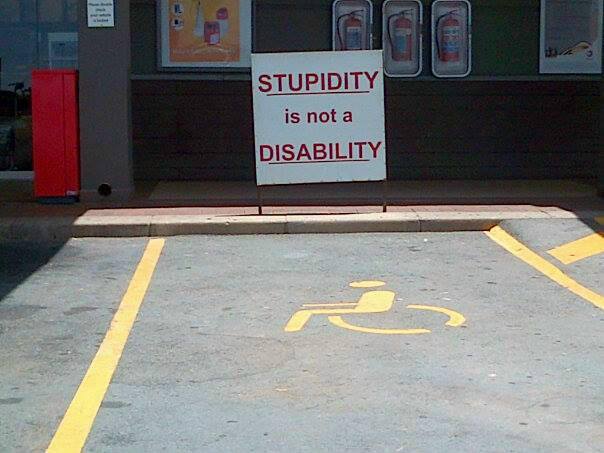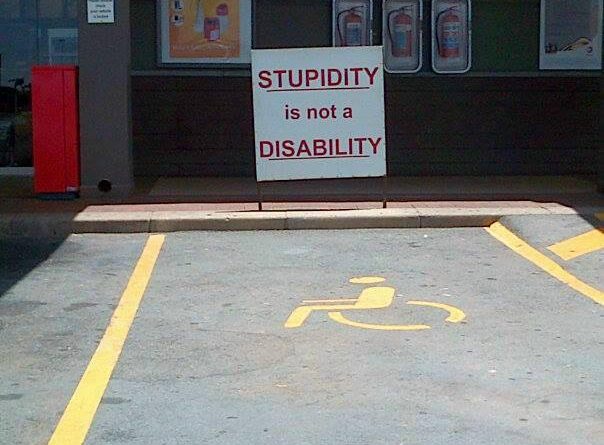What is the difference between disability and impairment?
 Ask anyone what they believe are the most common causes of disability and you’re most likely to hear “car accidents”, “freak incidents” or “injuries at work.” What you might be surprised to hear is that these aren’t the most common causes of disability.
Ask anyone what they believe are the most common causes of disability and you’re most likely to hear “car accidents”, “freak incidents” or “injuries at work.” What you might be surprised to hear is that these aren’t the most common causes of disability.
“Musculoskeletal disorders are the leading cause of disability – such disorders include the likes of arthritis, back pain, spine and joint disorders. However critical illnesses, such as cancer, heart attack, stroke and diabetes, actually cause the majority of long-term or permanent disabilities (i.e. disabilities that prevent a person from working again) – and these are becoming increasingly prevalent in people younger than 50.
Lifestyle choices and personal behaviours that lead to obesity are also becoming major contributing factors to disability,” explains Ryan Chegwidden, Head of Product & Technical at Hollard Life. “Unsurprisingly, motor vehicle accidents do also contribute significantly to disability rates. Typically, most disability claims caused by motor vehicle accidents occur in men younger than 30, with the next biggest risk group being 41 to 50 year old men. Estimates from the Road Traffic Management Corporation suggest that there are around 20 disabling accidents on our roads every day,”
Cost of living with a disability underestimated
Think you’re too young for disability cover? Think again. “Imagine a 35-year old executive left partially paralysed by a stroke. Or a twenty-something-year-old permanently disabled in a car accident having to sustain his standard of living for the next 40 to 50 years. While the average young person with no dependents might not have any major outstanding debt in the form of a bond, they’re going to have day-to-day living expenses – these become magnified when faced with the cost of medical care, assistive devices and home and vehicle modifications. This is why disability cover should be a priority for any young person,” explains Ryan.
What types of cover are available?
There are a large range of disability and impairment benefits available from insurers. While many insurance companies do not provide a full range of products, companies such as Hollard cover virtually all possible occupational scenarios in which you could find yourself. The benefits range from very elementary accident cover, right up to fully comprehensive benefits including extensive cover for both disability and impairment. Importantly, benefits are available on both an income basis (in which you receive a monthly payment to replace lost income) and a lump sum basis (in which all benefits are paid out as a single amount).
But what’s the difference between disability and impairment?
It’s important to have both disability and impairment cover as part of a holistic financial plan, but thanks to insurance jargon and overly technical policy wordings, it can be quite a challenge getting a handle on what the key difference is between the two benefits, and the roles they fulfil.
“Disability benefits aim to compensate you for the future loss of income and costs associated with you being disabled and unable to perform your specific occupation. Such benefits are specifically linked to your ability to work in your job function. For example, if you are a computer programmer and you lose your sight due to an accident or illness, you will be unable to do your job – your disability directly prevents you from earning an income as a computer programmer. You will be covered under your disability benefit.
“But let’s say that you lost the use of your legs due to a spinal injury in a car accident. Although this would mean you are disabled as you cannot walk or use your legs, it would not actually prevent you from doing your job, which is being in front of a computer and not requiring physical agility. So a disability benefit would not cover you in this instance as you are still able to perform your job as a computer programmer,” explains Ryan.
This is where impairment benefits come in. Impairment benefits provide cover in the event that you suffer a permanent impairment, but that impairment does not have to have any bearing on your ability to continue working. In other words, impairment cover is not linked to your occupation and ability to earn an income. The impairment claim event is assessed against a list of conditions listed in the policy when you take it out – for example musculoskeletal/spinal injury – and would pay out according to your policy limits.

Impairment is equally important as disability cover as it provides cover against unexpected expenses when it is needed most – for example you may still be able to work as a computer programmer, but you now have to meet the costs of a motorised wheelchair and modifications to your vehicle and house to accommodate a wheelchair. Hollard Life’s range of disability and impairment benefits mean that you can get cover for virtually every potential scenario when it comes to disability and impairment.
“Our entire approach is about delivering holistic insurance solutions where traditional insurance products are unable to meet the needs of a diverse client base and a changing world of work. When one considers that your life can change in a heartbeat, it’s good to know that with sound financial planning in place and benefits designed to wrap around your specific needs, you don’t have to spend your life worrying about ‘what-ifs’. There is a whole lot that can go right for you, even if life throws you a curve ball,” concludes Ryan.




